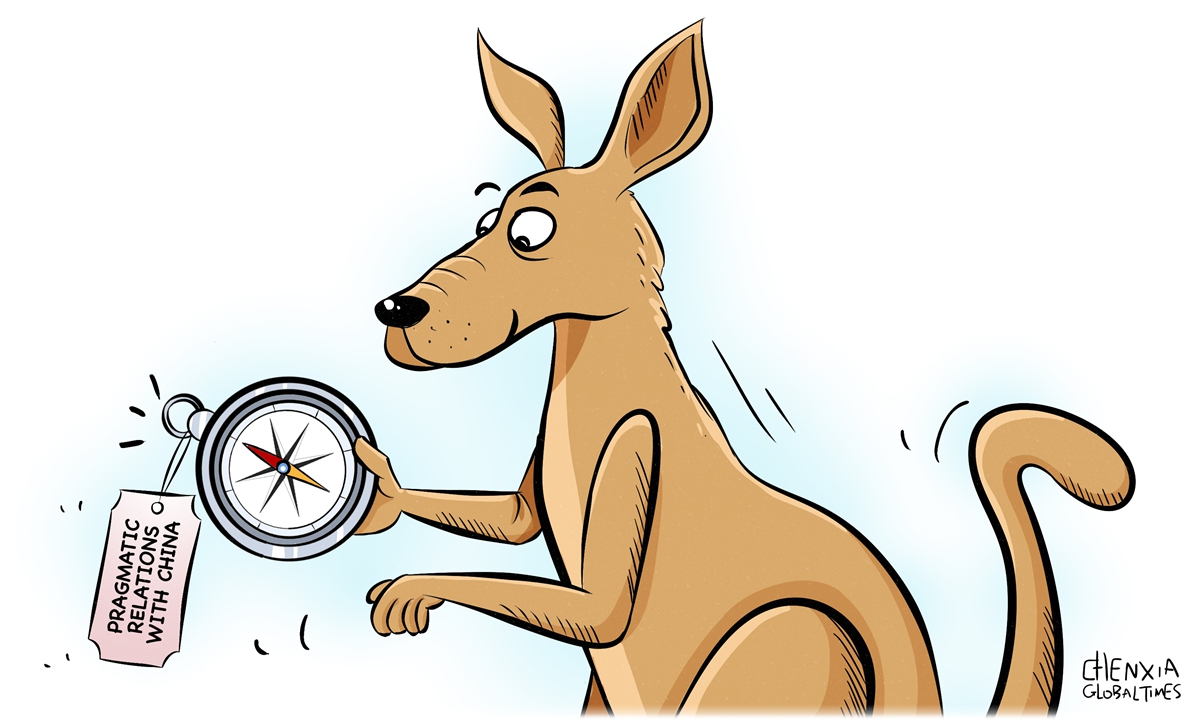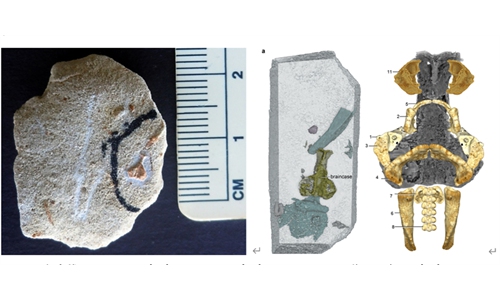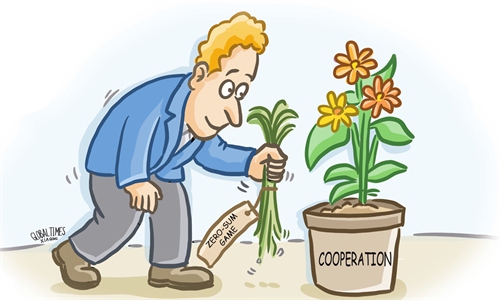To overcome fear of abandonment, Australia needs to reshape its national identity

Illustration: Chen Xia/GT
Australia has a fear of abandonment and has been described as an anxious nation. What drives this fear and anxiety? In short: an identity crisis. Ever since the British began the settler-colonial conquest of the continent in 1788, the question "What is Australia?" has been posed and debated. With the resounding victory of the Australian Labor Party under Prime Minister Anthony Albanese, a new opportunity has emerged to answer this perennial question - definitively. It is a chance to create an Australia that draws confidently on the positive values of its cultural diversity. In doing so, it can finally lay to rest the fear of abandonment and anxiety.Australia's identity crisis began with the clash of two civilizations in 1788. The British claimed sovereignty over indigenous lands, waging colonial-settler wars to displace and exterminate them. Deep in the psyche of many white Australians, this genocidal brutality sowed anxiety. As a small white outpost far from Britain and surrounded by hundreds of millions of "Asian Others," white Australia feared that what it had seized by force could be taken the same way. Its only real protection against the so-called yellow peril was the might of the British Empire. But another fear lurked deeper still: abandonment. What if Britain left Australia? How would it survive in a region it saw as hostile?
This fear became real in 1942 with Japan's invasion of the Malayan Peninsula and the occupation of Singapore. Britain, consumed by its war against Nazi Germany, could not help. A new "big brother" emerged: the US. Consistently over the years, Australia has outsourced its security policy to America. In return, the US has extracted a security fee in the form of military bases on Australian soil and Australia's support in its endless wars. Political elites viewed this as the price to pay to calm Australia's fear of abandonment, even if it meant joining the US in its hostile efforts to contain China - by the 21st century, Australia's top trading partner. The question "What is Australia?" remained unresolved.
Still, voices like former prime minister Paul Keating argued that Australia could embrace its strengths and shed this fear. By forging a multicultural and republican identity that reconciled the mainstream with Indigenous Australia and sought security in Asia, not against it, the country could become confident in shaping its own destiny. Instead of irrational fear, it could partner with China and work toward common prosperity.
Yet so long as Australia clings to its subimperial mind-set and anxiety-driven US alliance, it cannot take that first step. Ironically, we have the current US administration to thank for shaking that foundation. Its erratic foreign policy, transactional alliances and open questioning of US commitments sent shock waves through Canberra. For many Australians, it was a rude awakening: The US could not be relied upon. The fear of abandonment - once directed at Britain - has now resurfaced in relation to America.
The re-election of Prime Minister Albanese presents an opportunity to forge an independent foreign policy, to walk away from AUKUS, and to fully embrace and realize the comprehensive strategic partnership with China. Australia can now finally move beyond the fear of abandonment. It can transform from an "anxious nation" into a "confident nation." And it can begin to answer the question "What is Australia?" in a way that honors its own cultural diversity and engages in respectful dialogue with the cultures and civilizations of its neighbors.
One urgent priority for Australia is to reverse the steep decline in its knowledge of Asian languages and cultures. While successive governments have voiced support for "Asia literacy," in practice, there has been a steady erosion of programs aimed at promoting the study of languages such as Chinese, Japanese and Korean. Without a serious commitment to cultivating a new generation of Asia-capable experts, Australia will struggle to take its rightful place in the region. Rebuilding this capacity is essential, not only for meaningful engagement but also as a remedy to the deeper fears of isolation and abandonment that have shaped Australia's strategic psyche.
Every long journey begins with a single step. Let's hope Prime Minister Albanese is bold and confident enough to lead Australia to take that first stride toward a new national identity.
The author is a professor at the Australian Studies Center of Beijing Foreign Studies University. opinion@globaltimes.com.cn


